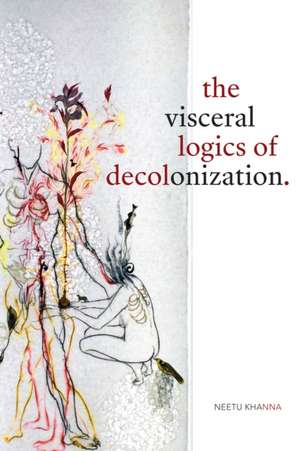The Visceral Logics of Decolonization
Autor Neetu Khannaen Limba Engleză Paperback – 27 feb 2020
Preț: 228.50 lei
Nou
Puncte Express: 343
Preț estimativ în valută:
43.72€ • 45.74$ • 36.32£
43.72€ • 45.74$ • 36.32£
Carte tipărită la comandă
Livrare economică 03-17 aprilie
Preluare comenzi: 021 569.72.76
Specificații
ISBN-13: 9781478008170
ISBN-10: 1478008172
Pagini: 200
Dimensiuni: 152 x 229 x 11 mm
Greutate: 0.27 kg
Editura: MD – Duke University Press
ISBN-10: 1478008172
Pagini: 200
Dimensiuni: 152 x 229 x 11 mm
Greutate: 0.27 kg
Editura: MD – Duke University Press
Cuprins
Acknowledgments vii
Introduction. The Visceral Logics of Decolonization 1
1. Agitation 35
2. Irritation 60
3. Compulsion 85
4. Evisceration 109
Coda. Explosion 132
Notes 151
Bibliography 161
Index 175
Introduction. The Visceral Logics of Decolonization 1
1. Agitation 35
2. Irritation 60
3. Compulsion 85
4. Evisceration 109
Coda. Explosion 132
Notes 151
Bibliography 161
Index 175
Notă biografică
Neetu Khanna is Assistant Professor of Comparative Literature at the University of Southern California.
Descriere
Focusing on the work of a Marxist anticolonial literary group active in India between the 1930s and 1950s, Neetu Khanna rethinks the project of decolonization by showing how embodied and affective responses to colonial subjugation provide the catalyst for developing revolutionary consciousness.
